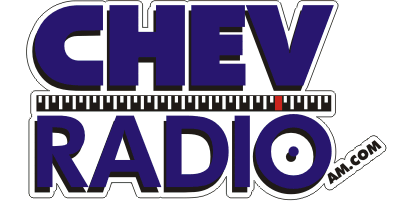NEWMARKET – There are various brands of "energy drinks" on the market today. Brand-name energy drinks such as Red Bull, Red Rave, and SoBe Adrenaline Rush are normally located in the grocery store alongside juice, water and sports drinks.
During the past few years, energy drinks have gained popularity among young adults looking for a quick boost of energy while performing sporting activities or for staying alert during late-night gatherings.
However, Health Canada has recently documented four incidents where there were adverse reactions to energy drinks when they were consumed in greater than recommended amounts or when they were mixed with alcohol. Adverse reactions include heart irregularities, dizziness, nausea and vomiting and electrolyte imbalances.
What is in an energy drink?Energy drinks are meant to supply mental and physical stimulation for a short period of time. Most energy drinks on the market are primarily comprised of high amounts of caffeine, sugar and water.
In one single 250 ml can of Red Bull there are five teaspoons of sugar and 80 mg of caffeine. This amount of caffeine is double of that contained in most soft drinks and half of that found in one cup of brewed coffee. Some energy drinks contain up to 300 mg of caffeine per bottle or can.
Many energy drinks also contain small amounts of ingredients such as glucuronolactone (a carbohydrate), herbs and taurine. Taurine is an amino acid, one of the building blocks of protein. Some energy drink manufacturers claim that taurine increases alertness, but there is no current research to support this.
Energy drinks should not be confused with sport drinks, such as Gatorade or Powerade. Sport drinks are specifically manufactured for re-hydrating the body and do not contain any caffeine.
Health risks of energy drinksCaffeine affects each person differently depending on how much is consumed, age, body size and overall health. Short-term effects of caffeine vary from increased heart rate, blood pressure and body temperature to longer term effects such as headaches, tremors, nervousness, irritability and sleeping problems.
Caffeine can also have a diuretic effect, causing frequent urination and may even cause dehydration. Energy drinks should not be consumed during or after exercise when re-hydration is necessary. Water is most effective for hydrating the body.
Energy drinks should never be mixed with alcohol. The high caffeine levels in the energy drinks can mask the depressant effects of alcohol, leaving people less aware of their lower level of alertness, coordination and impaired judgement. One study showed those who combine energy drinks and alcohol tend to drink more, take more risks and are more likely to experience harmful consequences while drinking.
There is little information on the effects of energy drinks and the York Region Public Health branch reminds residents to consume energy drinks with caution. Follow the product label instructions, do not exceed the recommended daily amounts and do not mix them with alcohol.
For more information on this or any other-health related topic, please contact York Region Health Connection at 1-800-361-5653.
skip to main |
skip to sidebar

News from Markham and the surrounding York Region
About Me
- CHEV Radio
- CHEV Radio is the voice of Markham and surrounding York Region. Broadcasting 24/7, around the world at www.chevradioam.com. CHEV Radio supports community artists and bands through local music shows and live-to-airs from neighborhood venues.